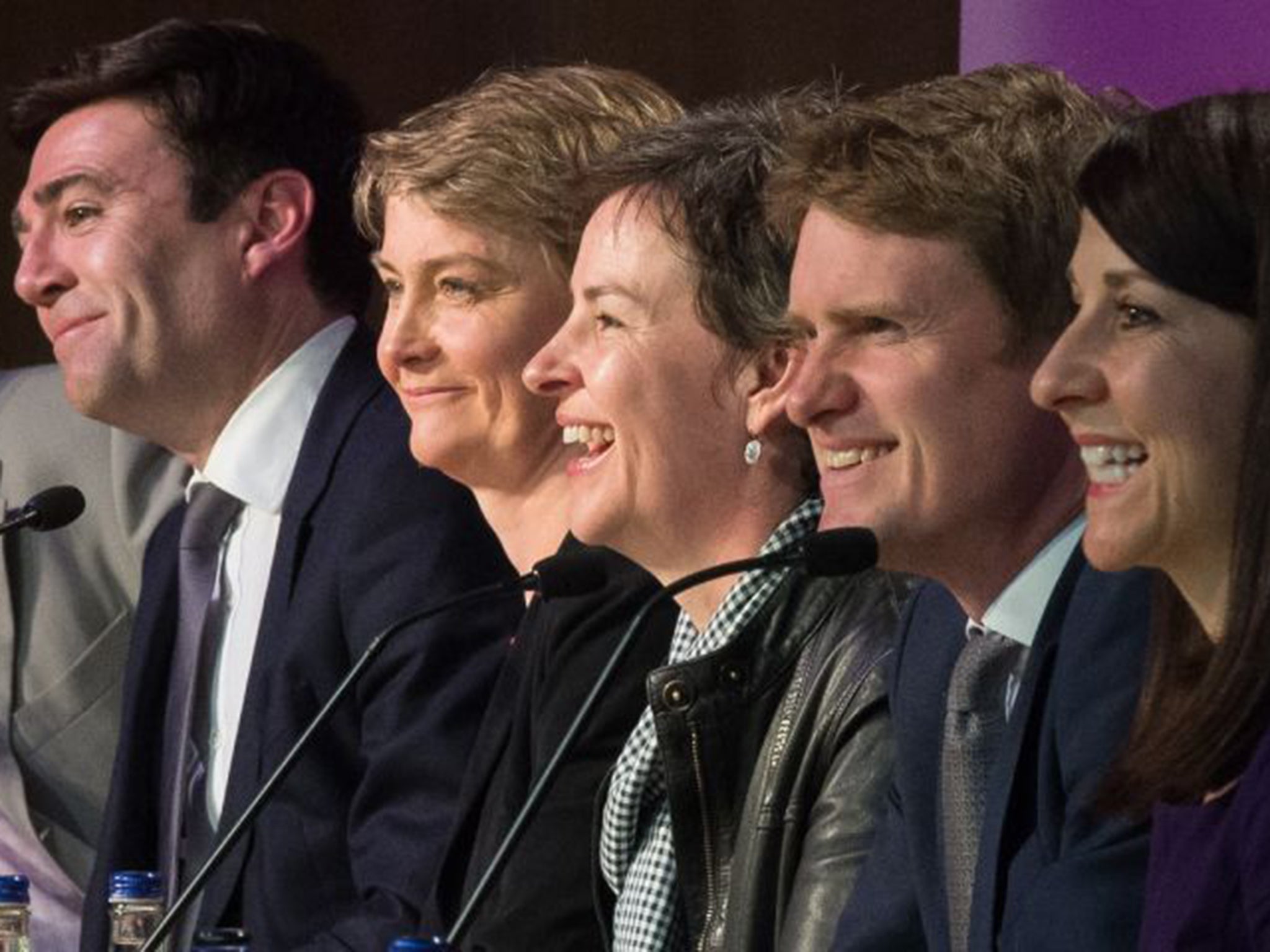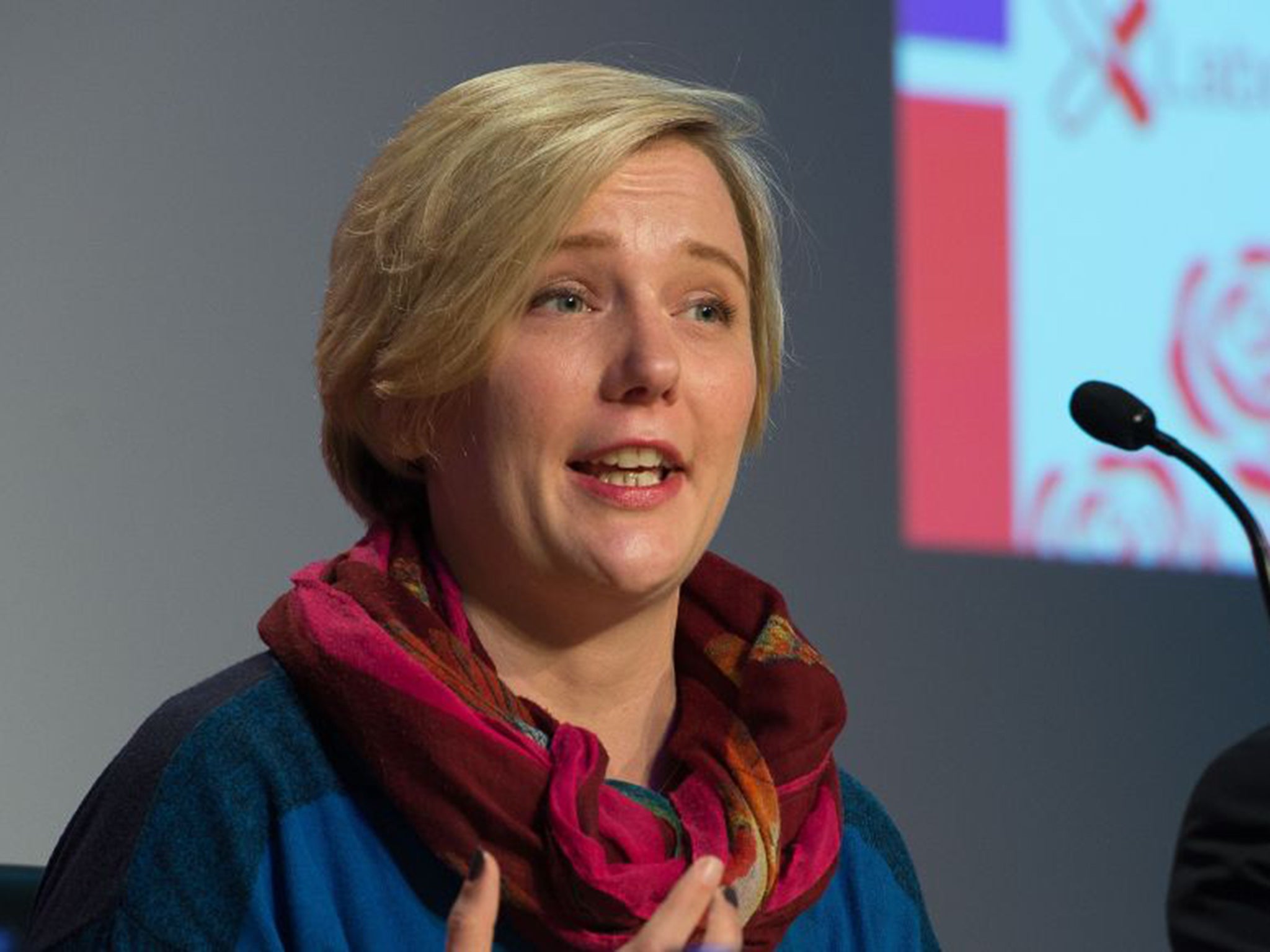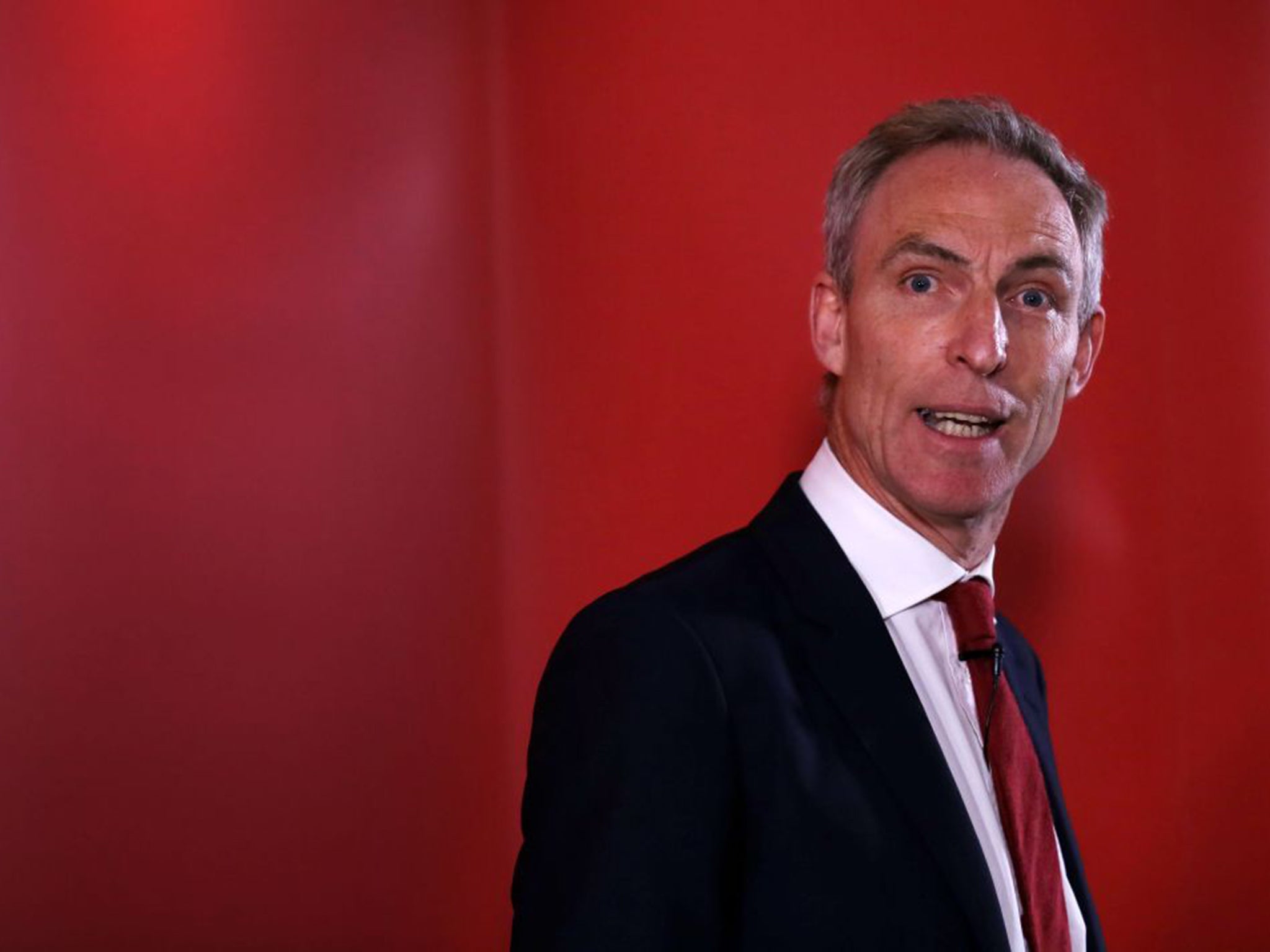Labour leadership: Battle lines are drawn as members battle over party's ideology at first hustings of the contest
Hopefuls fire opening shots with recrimination as well as very different visions for the party

Simmering resentment and recrimination over Labour’s worst election defeat in nearly 30 years burst into the open as the contenders vying to succeed Ed Miliband turned on each other at the first hustings of the contest.
With the party still reeling from the abrupt withdrawal of Chuka Umunna from the race, Jim Murphy resigned as Labour leader in Scotland despite winning a confidence vote over the party’s near-wipeout at the hands of the SNP. A contest to replace him this summer, along with the race for the party’s mayoral candidate, means Labour faces three simultaneous power struggles.
In central London, clear dividing lines emerged more than Labour’s future, as the five leadership contenders confronted each other over the economy, health and education at a tense and highly charged debate hosted by Progress, which represents the modernising wing of the party.
Liz Kendall, who has emerged as frontrunner among the modernisers, attacked Tristram Hunt, the shadow Education Secretary, for failing to have a “bold and inspiring education policy” going into the election. Mr Hunt looked stunned, and later insisted that Labour had gone to the electorate with “very exciting” policies on education, including devolving more power to schools and parents. Mr Hunt also attacked Mr Miliband’s team for prioritising “grab rails” for the elderly over education in Labour’s manifesto.
Andy Burnham, the shadow Health Secretary who is seen as the leading candidate for the unions, criticised his deputy, Ms Kendall, for saying earlier this year that “what matters is what works” in the NHS – which many saw as a clear positioning of herself as the heir to Tony Blair’s radical reform of public services, delighting many close to the former prime minister. But Mr Burnham said: “I would put it to all of you: the NHS is what matters … it is based on people, not profits.” Retaliating, Ms Kendall said: “I just don’t think that relying on the organisation of the NHS is going to be anywhere near enough [in solving the issue of investment versus reform]. We have got to put more power and more control into people’s hands.”
Ms Kendall attracted one of the biggest rounds of applause during the marathon 90-minute hustings when she said: “For me, the purpose of getting power is to give it away.”

Mr Burnham and Yvette Cooper, the shadow Home Secretary, insisted that the last Labour government had not spent too much, while Mr Hunt and Ms Kendall disagreed. Mary Creagh, the shadow International Development Secretary, said Labour should not apologise for 96 quarters of consecutive growth while in power, adding: “We rebuilt the public fabric of this country.” But, Ms Creagh added, “We were wrong to run that structural deficit before the crash.”
Ms Kendall said: “There is nothing progressive about spending more on debt-interest payments than [you are] spending on children’s education.” Mr Hunt said Labour had a lot to do to ensure the party was “trusted with public finances and the family finances”. But Ms Cooper said: “We should not let the Tories tell us that it was too much money for teachers, doctors and nurses that caused Lehman Brothers to crash.”
Asked by the debate chairman, Labour activist, broadcaster and Stonewall co-founder Simon Fanshawe, what a government under their premiership would do to encourage “the next Steve Jobs”, Ms Cooper highlighted the fact that 95 per cent of coders are men, saying: “This is not just about the Steve Jobs of the future. The question is, why is it Steve Jobs and not Stephanie Jobs?”

Despite the perception that the “left-wing” unions – who collectively have millions of affiliated members – will try to hijack the contest, the general secretary of Usdaw, John Hannett, said it would be a “disaster” for Labour if it went to the left under a new leader. The head of the UK’s fourth-largest union said that regaining the centre ground was the way to win back power.
North of the border, at a meeting of Scottish Labour’s national executive in Glasgow, Mr Murphy won a confidence ballot by 17 votes to 14 but nevertheless announced he would resign next month, alongside producing a plan to reform the party in Scotland. Mr Murphy, whose deputy Kezia Dugdale will become interim leader before a successor is in place by the summer, said he would not run for a seat in Holyrood next year, adding: “It is clear that a small minority who didn’t accept my election as leader of the Scottish Labour Party just five months ago won’t accept the vote of the executive today and that will continue to divide the party.”
Speaking of his outgoing plans for Scottish Labour, he said: “A party in such urgent need of reform blocks those changes at its peril.”
Join our commenting forum
Join thought-provoking conversations, follow other Independent readers and see their replies
Comments